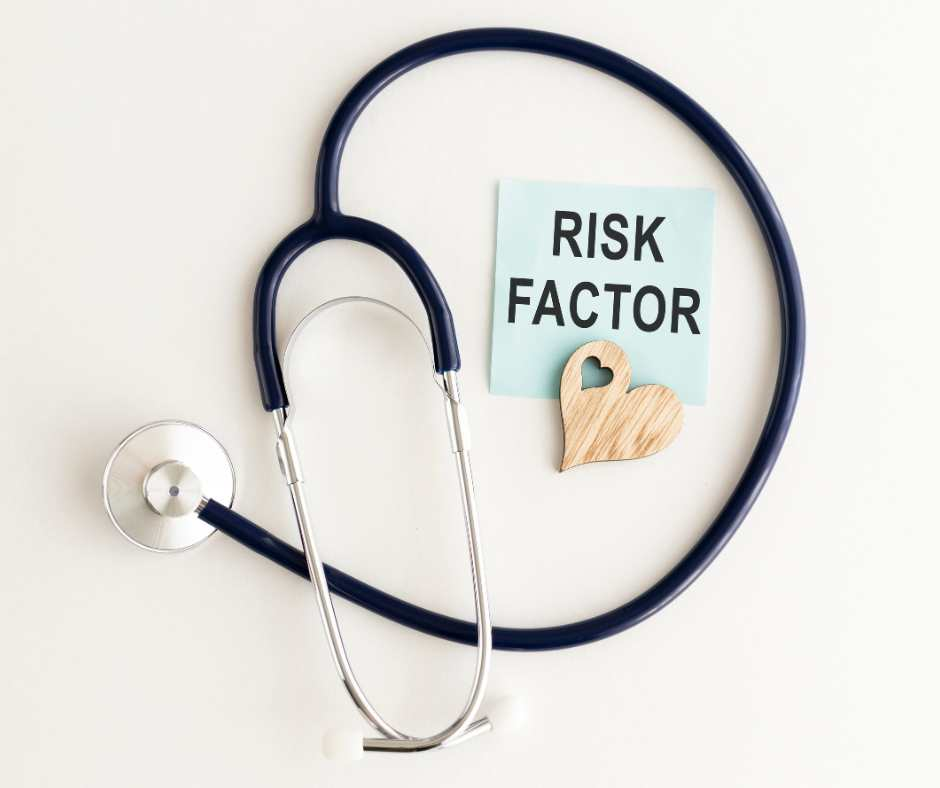The Impact of COVID Cognitive Decline & Strategies for Recovery
The long-term effects of COVID-19 continue to cast a shadow on millions worldwide, with "long Covid" presenting a complex array of lingering symptoms. Among these, cognitive deficits are a significant concern, significantly affecting many individuals' daily lives and mental well-being.
As we delve deeper into the scope of this challenge and seek effective avenues for recovery, recognizing the prevalence, risk factors, and potential treatment options for COVID-induced cognitive impairment becomes crucial.
By understanding the extent of this impact, we can pave the way for better support and improved quality of life for those affected.
Key Points:
COVID-19 can cause long-term cognitive impairments, including memory, attention, language, and executive function deficits.
Risk factors for developing cognitive decline post-COVID include the severity of the infection, medications used in treatment, and environmental factors like isolation.
Speech-language pathologists play a crucial role in supporting recovery, using personalized interventions to improve cognitive functions affected by long COVID.
Defining Long COVID Cognitive Decline
Diving Deeper into the Labyrinth of Long COVID Cognitive Decline
Risk Factors and Vulnerable Populations
How SLPs Can Guide Your Recovery from Long COVID Cognitive Decline
Defining Long COVID Cognitive Decline
While the initial focus of COVID-19 was on its respiratory effects, the long-term impacts paint a more complex picture. Beyond lingering physical symptoms, many individuals now grapple with a mysterious phenomenon known as "long COVID cognitive decline."
This condition, characterized by memory, attention, and language impairments, echoes concerns often seen in individuals with mild cognitive impairment (MCI). It can significantly impact daily life and well-being, making it challenging to navigate basic tasks and maintain cognitive and physical functioning. People often report a feeling of persistent "brain fog."
The good news is that hope exists for recovery. While the exact mechanisms behind COVID-19-induced cognitive changes are still under investigation, recent research suggests potential impacts on brain structure and function. Thankfully, professionals like speech-language pathologists (SLPs) are stepping up to the plate, utilizing their expertise to help individuals navigate this new terrain.
Beyond the Fog: Key Symptoms
Imagine struggling to remember simple tasks, like where you placed your keys, or stumbling over familiar words. These are just some of the common symptoms associated with long COVID-19 symptoms. As mentioned, cognitive changes often mirror those seen in individuals with mild cognitive impairment (MCI). Individuals might experience:
Memory lapses: Difficulty recalling information, forgetting appointments, or misplacing belongings.
Attention deficits: Difficulty focusing on tasks, being easily distracted, or following conversations.
Language challenges: Finding words, experiencing jumbled thoughts, or having difficulty expressing oneself clearly.
Executive dysfunction: Trouble with planning, organizing, and making decisions.
More Than Meets the Eye: Potential Causes
While the exact mechanisms remain under investigation, several theories shed light on potential causes of cognitive changes following COVID-19:
Inflammation: Research indicates that COVID-19 can trigger an inflammatory response in the body, potentially affecting various organs, including the brain.
Vascular damage: COVID-19 could damage blood vessels, impacting blood flow to the brain, similar to mechanisms observed in neurodegenerative diseases like Alzheimer's.
Direct nerve injury: The virus may potentially damage specific nerves within the central nervous system involved in cognitive function. The central nervous system controls various functions like thinking, movement, and sensation.
Psychological factors: Anxiety, depression, and sleep disturbances associated with COVID-19 can exacerbate cognitive challenges.
Diving Deeper into the Labyrinth of Long COVID Cognitive Decline
Post-COVID-19 cognitive changes are not simply a case of forgetting your keys or losing track of time. The symptoms manifest in various ways, impacting different aspects of daily life. Let's delve deeper into this condition, highlighting the nuanced experiences individuals might face:
Memory Lapses:
Short-term memory: Forgetting what you just read, said, or did moments ago becomes a recurring theme. Grocery lists disappear from your mind, conversations leave you confused, and simple instructions vanish like smoke.
Working memory: Holding information in your mind for even a brief period feels impossible. Multitasking becomes a daunting challenge, and following complex directions feels like trying to juggle watermelons.
Retrieval: Familiar names, faces, and even words get locked away, leaving you desperately searching for them. The frustration of having something "on the tip of your tongue" becomes a constant companion.
Attention Deficits
Distractibility: The slightest noise, movement, or even your thoughts can pull you away from the task at hand. Maintaining focus during meetings, studying, or watching a movie feels like an uphill battle. You might find yourself zoning out in important conversations or forgetting entire sections of lectures.
Mental fatigue: Concentrating for even short periods seems to drain your mental energy rapidly. Reading a few pages feels like running a marathon, and simple tasks leave you exhausted. This fatigue can further compromise your ability to focus and maintain attention. Many individuals report a feeling of brain fog.
Mind-wandering: Your thoughts drift away without warning, making staying present in conversations or completing tasks challenging. You might find yourself zoning out in essential meetings or forgetting entire sections of lectures. This can be particularly frustrating in social settings or while working on demanding tasks.
Language Challenges
Word-finding: The right words evaporate from your grasp, leaving you stammering and searching for replacements. Expressing yourself clearly feels like struggling through a mental fog, leading to frustration and social awkwardness. In some cases, words might vanish entirely, leaving you unable to speak or understand language for brief periods. This can be a terrifying experience, further adding to the anxiety and isolation associated with cognitive changes.
Comprehension: Following conversations, especially in noisy environments, feels like deciphering a foreign language. Jokes go over your head, and complex instructions leave you confused. This can lead to misunderstandings and social isolation, as you might struggle to participate fully in conversations or activities.
Grammar and fluency: Sentence structure and grammar might become muddled, making it difficult to express yourself coherently. This can further impact your ability to communicate effectively and be understood by others.
Reading and writing: Difficulty concentrating while reading can make it challenging to finish articles or books. Writing might become laborious, with errors in spelling and grammar becoming more frequent. These challenges can affect your ability to work, learn, and stay informed.
Executive Dysfunction
Planning and organization: Daily routines become chaotic puzzles. Planning meals, managing finances, or organizing work projects feels overwhelming and impossible. Even small decisions like what to wear take immense mental effort.
Time management: Time seems to slip through your fingers, making it challenging to meet deadlines or stick to schedules. Arriving late, forgetting appointments, and struggling to complete tasks within the allotted timeframes become recurring problems.
Decision-making: Even simple choices feel fraught with uncertainty. The mental effort required to weigh options and make sound decisions leaves you feeling drained and indecisive.
This is not an exhaustive list, and symptoms' specific combination and severity can vary significantly from person to person. These cognitive challenges often overlap and exacerbate each other, creating a complex web of difficulties. If you're experiencing any of these symptoms, seeking professional evaluation is crucial for accurate diagnosis and exploring effective treatment options.
Risk Factors and Vulnerable Populations
Numerous key risk factors can lead to early onset cognitive decline, such as the severity of COVID-19 infection, the medications prescribed for treatment, and environmental aspects like isolation and limited social engagement.
While the exact causes of post-COVID-19 cognitive changes remain under investigation, research suggests several potential risk factors that may contribute to its development:
Severity of COVID-19 Infection
A strong correlation exists between the severity of the COVID-19 infection and the likelihood of developing cognitive changes, including mild cognitive impairment. Patients with COVID-19 who experienced ICU admission and higher levels of inflammatory markers are at a higher risk of cognitive impairment and may exhibit subsequent cognitive impairment.
This increased risk highlights the need for targeted support and interventions for patients recovering from COVID-19, as well as their moderate cognitive impairment relative counterparts.
In addition to the severity of infection, pre-existing cognitive dysfunction and psychiatric conditions can also increase the risk of developing cognitive higher in COVID-19 patients.
These patients may experience cognitive symptoms, such as altered mental status, further complicating the diagnosis and management of cognitive impairment. Identifying and addressing these risk factors is crucial for improving the cognitive outcomes of long COVID patients.
Medications and Treatment
Some medications prescriptions used for COVID-19 treatment, like guanfacine and EGb 761®, have been reported to be linked with cognitive impairment. While the dosage and frequency of medications on cognitive function require further research, monitoring the potential side effects of COVID-19 and COVID-19 treatments on cognitive function is crucial.
Another potential risk factor for experiencing cognitive changes is the use of self-administered sedatives, which can worsen neuropsychiatric symptoms in COVID-19 patients. Healthcare providers may be unable to assess patient medication dosage and potential side effects. This can lead to a decline in cognitive functions.
Adequate monitoring and management of medications are essential for reducing the risk of developing cognitive changes in long COVID patients.
Environmental Factors and Isolation
Over the years, isolation and reduced social participation have negatively impacted cognition in long COVID patients. Loneliness, cognitive inactivity, and environmental factors such as noise, lighting, and air quality can all contribute to cognitive impairment. Moreover, the mental health of long-term survivors has been significantly impacted by COVID-19, with long-lasting effects such as:
anxiety
depression
trauma
sleep disturbances
The following section will explore how speech-language pathologists can empower individuals to navigate post-COVID-19 cognitive changes. By providing tailored interventions and evidence-based strategies, speech therapists can help individuals reclaim cognitive function and regain control over their daily lives.
How SLPs Can Guide Your Recovery from Long COVID Cognitive Decline
The lingering effects of COVID-19 can leave individuals feeling lost and frustrated. However, there is hope. Speech-language pathologists are uniquely equipped to address cognitive impairments resulting from COVID-19.
Why SLPs?
SLPs are extensively trained in communication and cognitive processes. They deeply understand the brain-language connection and leverage this knowledge to assess and address various cognitive difficulties. SLPs focus on practical, functional skills, empowering you to manage daily tasks and improve your quality of life.
Shining a Light: Assessment and Tools
The journey with an SLP begins with a comprehensive assessment of cognitive dysfunction. They utilize standardized tests and informal evaluations to pinpoint your strengths and weaknesses in areas like memory, attention, language, and executive functioning. Additionally, they consider your individual needs, lifestyle, and goals to tailor a personalized treatment plan.
Reclaiming Your Abilities: Key Intervention Areas
Memory and Attention: SLPs equip you with memory-boosting strategies like mnemonics and organizational techniques. They can also guide you in attention training exercises to enhance focus and reduce distractibility.
Language Skills: Working on vocabulary and grammar accuracy becomes crucial for clear communication. SLPs incorporate technology-aided therapies and practice exercises to enhance your ability to express yourself effectively.
Executive Function: SLPs design interventions to improve problem-solving, planning, and decision-making skills. This could involve practicing organizational strategies, breaking down complex tasks into manageable steps, and utilizing technology tools for time management.
Looking Ahead: Hope and Recovery
The road to recovery may seem long, but with dedicated effort and the support of an SLP, you can improve your overall cognitive functioning. SLPs empower you with the tools and strategies needed to navigate the challenges of post-COVID-19 cognitive changes.
Home-Based Strategies for Post-COVID Cognitive Recovery
While managing long COVID's cognitive fog can feel overwhelming, remember, you can reclaim your mental agility. Here are some practical strategies you can implement at home to support your cognitive recovery:
Brain Fitness Boost
Engage your mind: Challenge yourself with brain-training apps, puzzles, or mental arithmetic. Simple activities like learning a new language or playing chess can stimulate cognitive processes.
Embrace mindfulness: Meditation and deep breathing exercises can enhance focus and reduce mental fatigue, promoting cognitive clarity. Explore guided meditations designed explicitly for cognitive improvement.
Get moving: Regular physical activity, even moderate walks or gentle yoga, increases blood flow to the brain, promoting cognitive function and overall well-being.
Strengthen Memory and Attention
Mnemonic magic: Create memory aids like rhymes or acronyms to encode information more effectively. For instance, remember PEMDAS with "Please Excuse My Dear Aunt Sally" for mathematical order of operations.
Chunking and listing: Break down large tasks into smaller, manageable steps and create to-do lists to stay organized and focused. Use reminders and alarms to keep on track.
Minimize distractions: Find a quiet workspace free from clutter and notifications. Consider noise-canceling headphones to reduce distractions further.
Sharpen Language Skills
Read actively: Engage with stimulating articles, books, or audiobooks, focusing on comprehending and summarizing information. Discuss what you read with others to solidify your understanding.
Wordplay wonders: Crossword puzzles, word games, and vocabulary-building apps can expand your vocabulary and enhance communication skills in a fun way.
Practice transparent communication: Engage in conversations with friends and family, actively listening and expressing yourself clearly. Participate in online discussion forums or join social groups to connect with others facing similar challenges.
Remember: Consistency is critical. Integrate these strategies into your daily routine for optimal results. Track your progress and celebrate even minor improvements. Don't hesitate to seek professional support from a speech-language pathologist for personalized guidance and tailored interventions. Remember, you can reclaim your cognitive abilities and navigate this journey with strength and hope.
Frequently Asked Questions
1. Does COVID-19 cause cognitive changes?
Evidence suggests that post-COVID-19 conditions can include cognitive impairment, such as deficits in attention, executive function, memory, and learning.
2. Can COVID-19 cause dementia-like symptoms?
COVID-19 can cause long-term impairments, including Alzheimer's-related brain changes and symptoms such as cognitive or memory disorder. Additionally, long-Covid has been known to cause brain fog, difficulty concentrating and remembering tasks, or recent events, all of which are indicative of dementia-like symptoms.
3. What does brain fog feel like?
Brain fog often feels like having a "cloudy" head, struggling to focus, remember things, and think clearly, similar to waking up but never thoroughly sharpening mentally.
4. Does everyone who has COVID-19 experience cognitive deficits?
While cognitive deficits are a concerning symptom of long-term COVID-19, not everyone who has COVID-19 experiences them. The risk and severity vary, influenced by factors like illness severity and individual differences.
5. Who can help someone overcome thinking problems after COVID-19?
Individuals facing post-COVID cognitive challenges can find support from speech-language pathologists specializing in cognitive rehabilitation. These professionals offer personalized interventions to treat cognitive impairment such as memory, attention, language, and executive function difficulties.
How Connected Speech Pathology Can Help You
At Connected Speech Pathology, we understand the unique challenges individuals face after experiencing COVID-19. Our dedicated team of speech pathologists is here to help you navigate your brain fog and reclaim your cognitive abilities.
We begin by conducting a comprehensive assessment to understand how COVID-19 has impacted your memory, attention, and overall cognitive function. We consider factors like the severity of your illness, how long you've been experiencing symptoms and even any pre-existing conditions you may have. This personalized approach ensures our interventions are tailored to your unique needs, maximizing your chances of success.
But what does a successful intervention look like? We utilize evidence-based strategies to target specific cognitive areas. Cognitive exercises help improve memory, attention, and executive function, empowering you to manage daily tasks with renewed clarity.
We also work collaboratively with you to develop practical strategies for everyday life. Imagine organization techniques that keep you on top of your schedule; memory aids that prevent lost keys, and communication exercises that boost your confidence in social settings.
The beauty of Connected Speech Pathology is that we deliver our effective therapy remotely, making it convenient and accessible for you. This means you can receive expert guidance and personalized support from the comfort of your home, eliminating travel stress and fitting therapy into your busy schedule.
Our ultimate goal is to empower you to navigate the post-COVID-19 cognitive landscape confidently. Through personalized intervention plans, ongoing support, and cutting-edge remote therapy, we'll help you reclaim your cognitive abilities and foster a sense of well-being, both mentally and cognitively. Remember, you're not alone in this journey. Let Connected Speech Pathology be your guide to a brighter, clearer future.
Summary
In conclusion, COVID-19 cognitive decline presents a significant challenge in the aftermath of the pandemic. With millions of long COVID patients grappling with cognitive impairment, understanding the prevalence, risk factors, and potential treatments is crucial for improving their cognitive outcomes and overall well-being.
As we continue to navigate the complexities of this issue, a comprehensive and interdisciplinary approach to prevention, diagnosis, and treatment will be essential in supporting those affected and helping them regain their independence and mental well-being.
About the Author
Allison Geller is a communication coach, speech-language pathologist, and founder of Connected Speech Pathology, an international online practice providing professional communication coaching and speech therapy for children, teens, and adults. With more than two decades of experience, she has worked in medical and educational settings, published research on aphasia, and leads a team of specialists helping clients improve skills in public speaking, vocal presence, accent clarity, articulation, language, fluency, and interpersonal communication.









